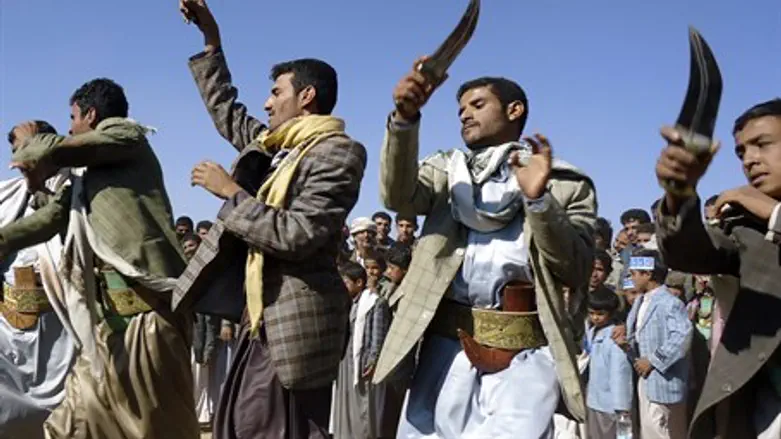
The "Arab spring" continues in Yemen, where the Shi'ite Houthi militia loyal to Iran has completely taken control of the government in the capital city of Sana'a, after forcing the disbanding of the previous government and parliament by besieging the seat of government.
The Houthi "transition government" has been established for a two year period, and has already published a "constitutional declaration" adding to Yemen's constitution.
Iran's proxy group took control of Sana'a last September, forcing the resignation of President Abed Rabbo Mansour Hadi in January.
Mohammed Ali Al-Houthi, the new president of Yemen, has already created a supreme security council with 17 members, most of them from the Houthi minority. The council, which is chaired by General Mahmoud Salam Al-Subeihi who was defense minister in the previous government, is tasked with managing state affairs.
Not all are taking kindly to the Houthi takeover however; in the south and east of the country there is widespread opposition to the new government, and concern that it will allow Iran to take over Yemen, thereby endangering the Arabian Peninsula and control the Red Sea.
The security council in the city of Aden has established a "security belt" meant to check the advance of the Houthis.
In Sana'a, meanwhile, massive protests are being held against the new pro-Iranian regime, but they are being quashed by Houthi activists whose slogan is "death to America, death to Israel."
Iran held a massive naval drill late last December in which it sent war ships near the Yemenite coast, in a clear message signalling the Islamic regime's interests.
It's Houthi proxies have already captured several port cities, significantly Hodeidah, and are now working under Iran's direction to take over the strategic strait of Bab el-Mandeb, controlling access to the Red Sea and possibly putting Israel's port of Eilat under its control.